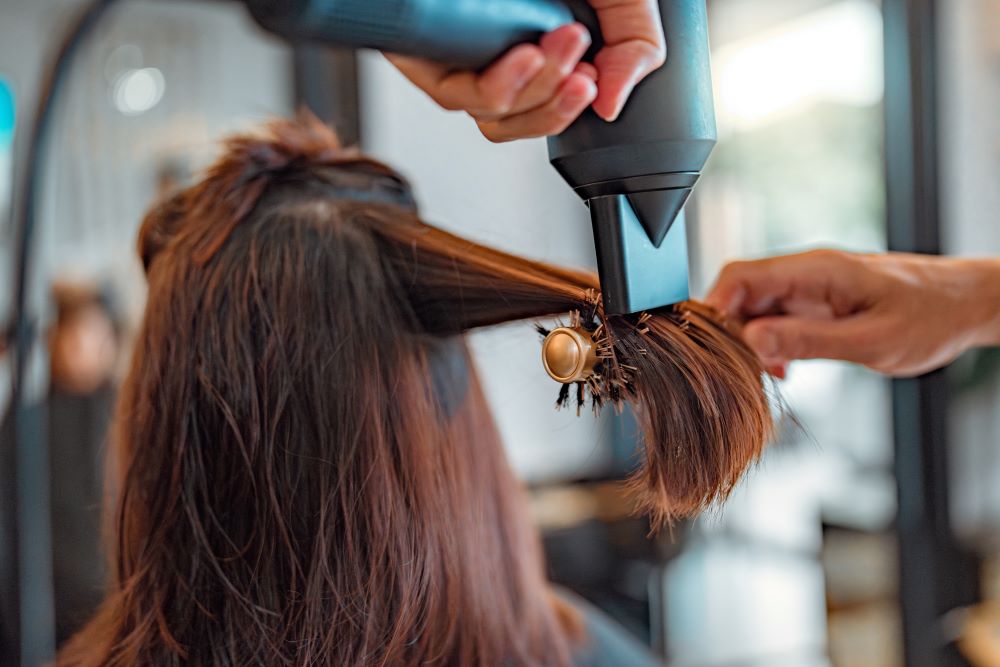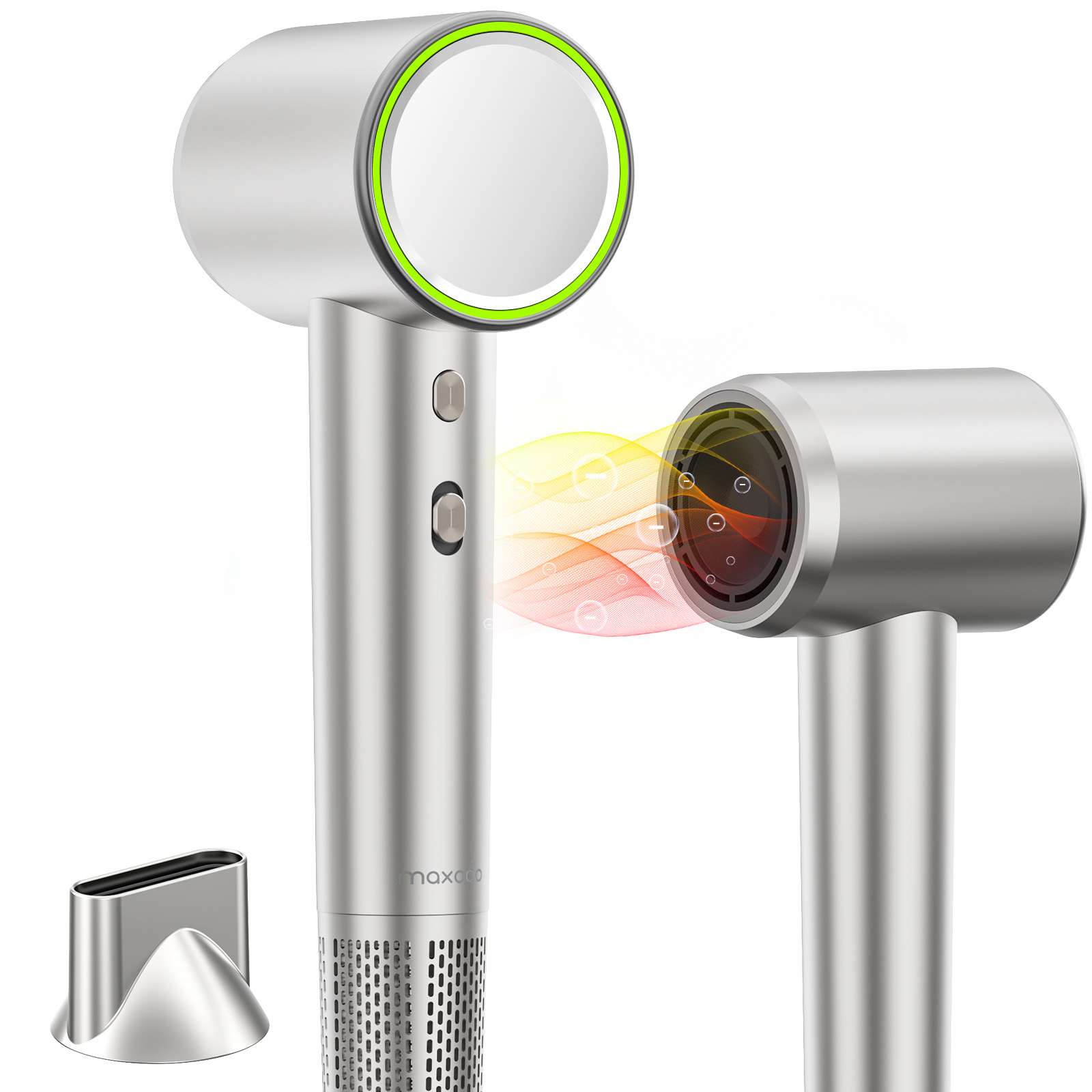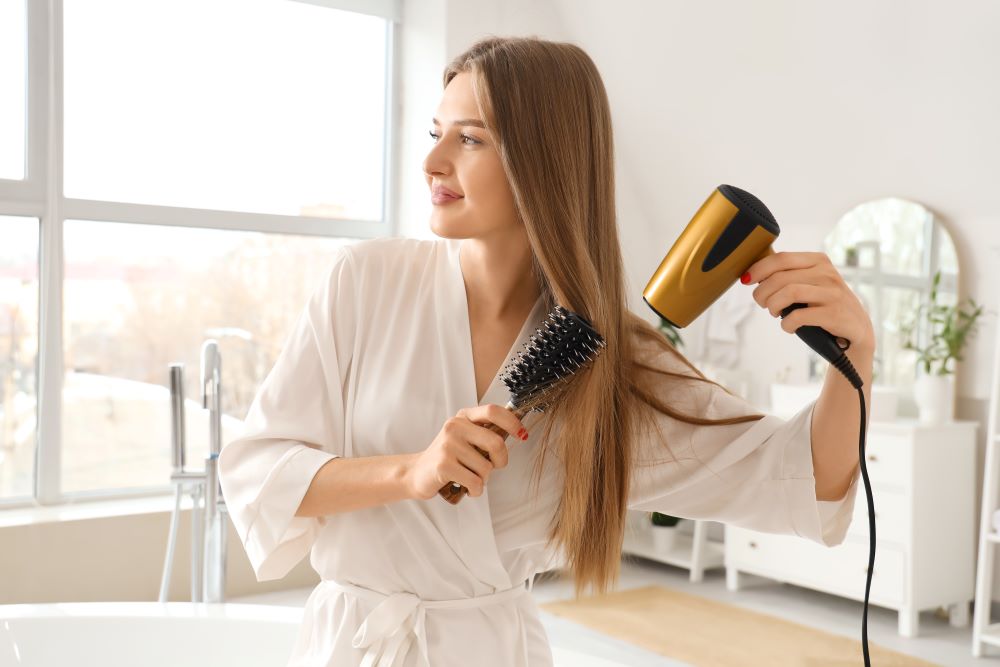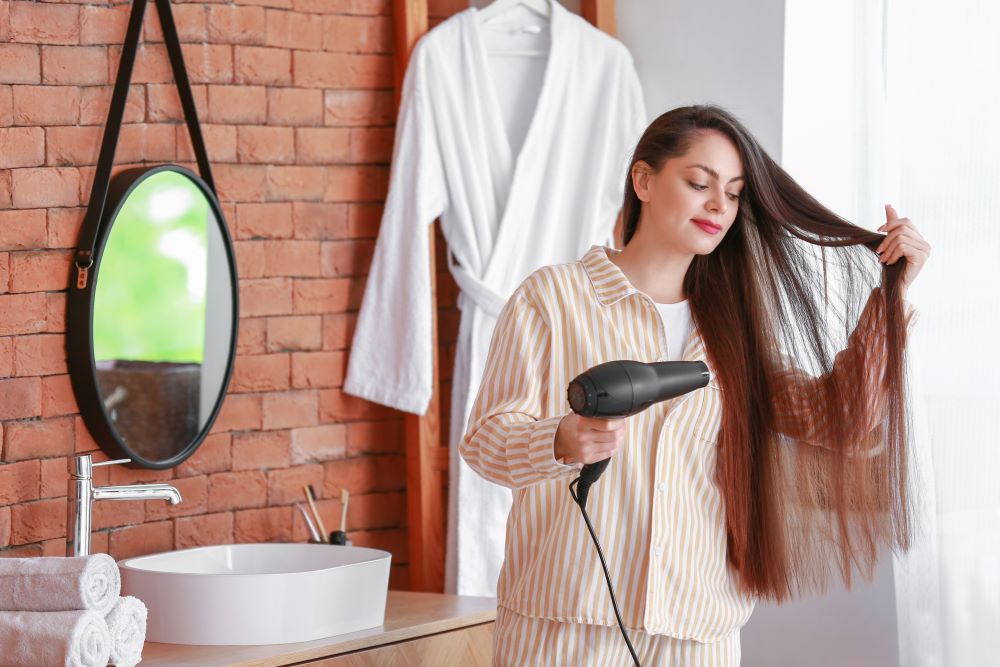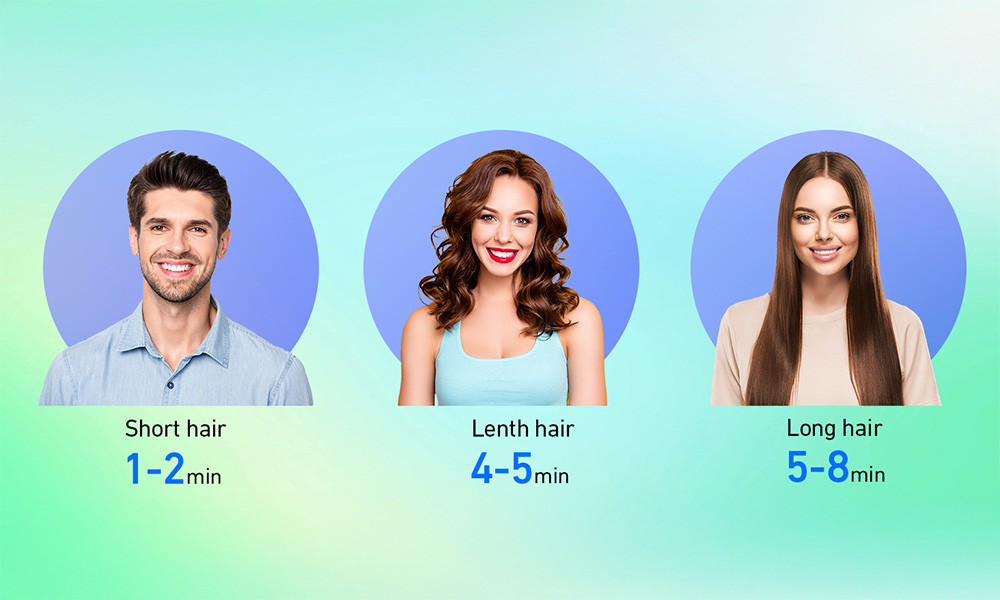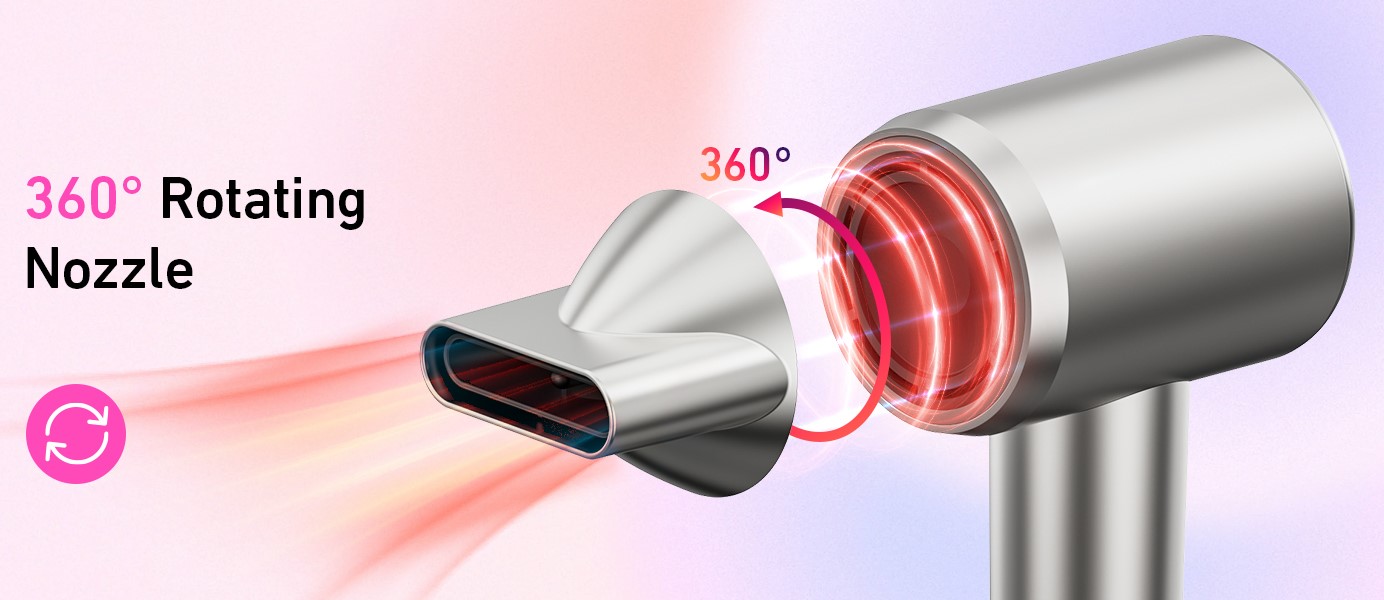
- Home
- Hair Dryer
- Professional vs. Consumer Hair Dryers: What’s the Difference?
Professional vs. Consumer Hair Dryers: What’s the Difference?
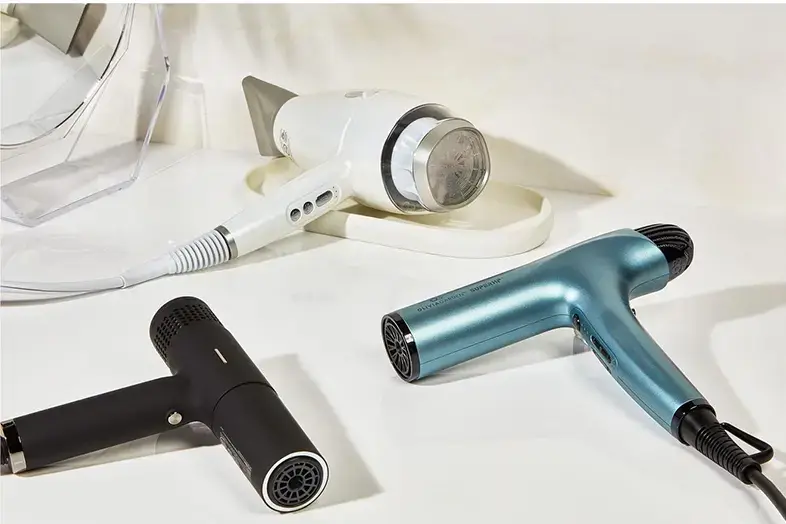
The hair dryer market has witnessed significant growth and evolution over the past few decades, transforming from a niche segment into a comprehensive industry catering to diverse consumer needs. Today, the market is segmented into professional and consumer categories, each offering products with varying levels of power, technology, and price points. Professional hair dryers are typically designed for salon use, offering higher power, durability, and advanced styling features. In contrast, consumer hair dryers are geared towards everyday use, prioritizing ease of use, convenience, and affordability. The proliferation of technology and design innovations has led to the introduction of a wide range of hair dryers, from basic models to sophisticated devices equipped with ionic, ceramic, and tourmaline technologies, catering to a broad spectrum of styling preferences and hair types.
Importance of Choosing the Right Hair Dryer
Selecting the appropriate hair dryer is crucial for both hair health and styling efficiency. The right hair dryer can significantly reduce hair damage caused by heat, enhance hair’s natural shine, and improve overall hair texture. For professionals, choosing a high-quality hair dryer is essential for meeting diverse client needs, ensuring durability and longevity in high-use environments. For consumers, the right hair dryer not only enhances daily hair styling routines but also contributes to long-term hair health. Understanding the differences between professional and consumer hair dryers, including their features, technologies, and benefits, can help users make informed decisions that align with their hair type, styling habits, and budget constraints.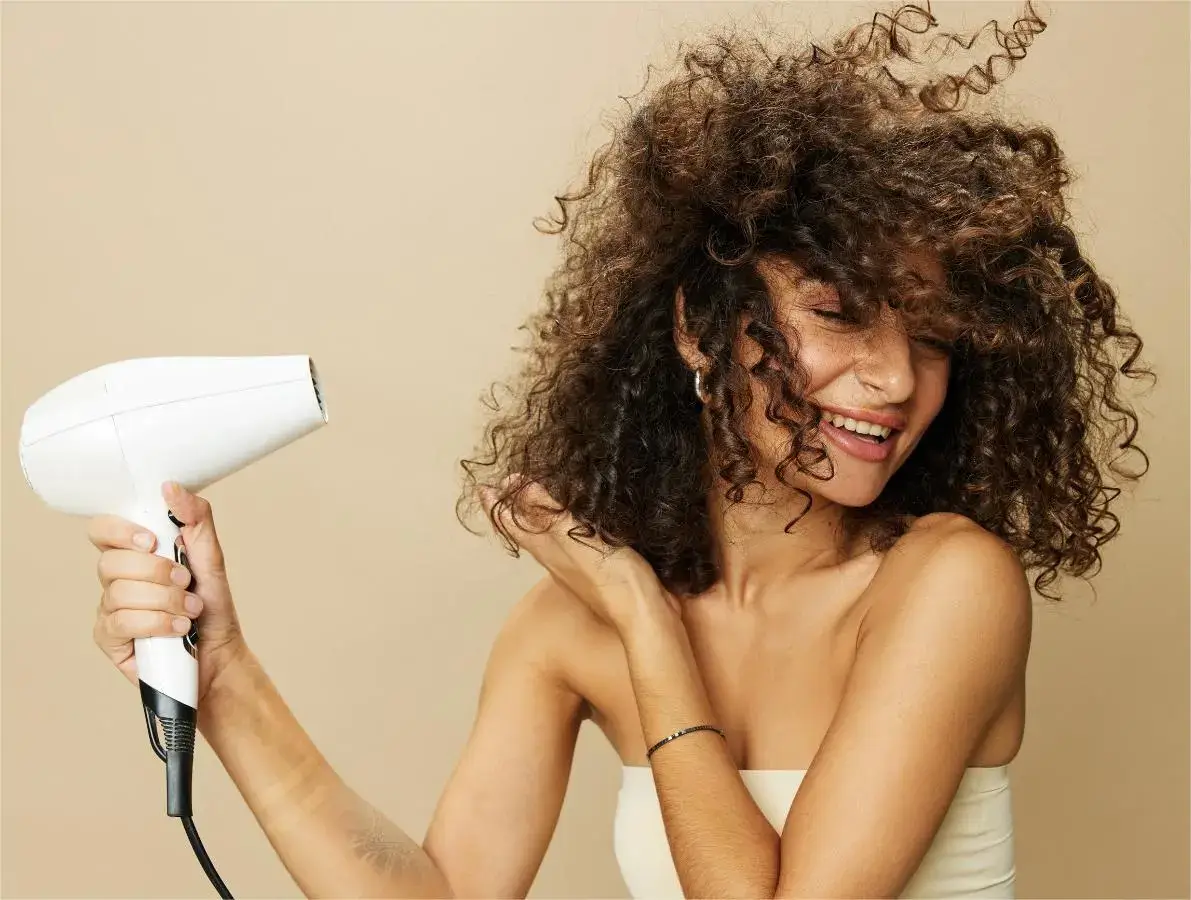
Understanding Hair Dryers
Basic Mechanics of Hair Dryers
At its core, a hair dryer functions by blowing air over a heating element, thus producing hot air that accelerates the evaporation of water from the hair’s surface, effectively drying the hair. Modern hair dryers are equipped with various settings to control airflow and temperature, allowing users to customize their drying experience based on hair type and styling needs. Advanced models incorporate technology that not only dries hair but also aims to improve hair health, such as ionic dryers that emit negative ions to break down water molecules faster while minimizing heat damage and enhancing hair’s smoothness and shine.
The Evolution of Hair Dryers: From Simple Tools to Advanced Styling Gadgets
The journey of hair dryers from simple, manual tools to today’s advanced styling gadgets is a testament to the strides made in personal care technology. Initially, hair dryers were basic devices with limited functionality, offering little more than hot air to dry hair. Over time, advancements in technology and materials have led to the development of hair dryers that offer much more than just drying. Today’s hair dryers can boast features such as multiple heat settings, cool shot buttons, and even ultraviolet light for microbial protection. The incorporation of materials like ceramic, tourmaline, and titanium has further revolutionized hair drying, allowing for even heat distribution, reduced frizz, and enhanced hair protection. This evolution reflects the industry’s move towards providing consumers with not just functional devices, but tools that enhance hair health, styling versatility, and overall user experience.
Professional Hair Dryers
Definition and Key Characteristics
Professional hair dryers are designed with advanced technology and robust materials to meet the demands of hair stylists in salons. These dryers offer superior performance, durability, and versatility compared to their consumer-grade counterparts. Key characteristics include higher wattage, which translates to more powerful airflow and faster drying times; professional-grade motors that last longer; and ergonomic designs that minimize hand and arm fatigue during prolonged use.
Why Professionals Choose High-End Hair Dryers
Professionals opt for high-end hair dryers for several reasons. The primary factor is the need for reliability and efficiency in a fast-paced salon environment. These dryers are built to withstand frequent use while delivering consistent results. They also provide a range of heat settings and airflow controls, allowing stylists to tailor the drying process to the specific needs of different hair types and styles, thus ensuring client satisfaction with every visit.
Common Features and Technologies
Professional hair dryers often come equipped with features and technologies that set them apart, including:
Ionic Technology: Reduces frizz by emitting negative ions that break down water molecules, speeding up drying time and sealing the hair cuticle for a smooth finish.
Ceramic and Tourmaline Components: Generate infrared heat that dries hair gently from the inside out, reducing the risk of heat damage and enhancing shine.
AC Motors: Offer longer lifespans and more powerful airflows than the DC motors found in consumer models.
Multiple Heat and Speed Settings: Provide precise control over styling, catering to a wide range of hair types and conditions.
Cool Shot Button: Helps to set styles by blasting cold air and closing the hair cuticles.
Top Brands and Models in the Professional Segment
Several brands stand out in the professional hair dryer market, including:
Dyson Supersonic™: Known for its innovative design, powerful digital motor, and intelligent heat control that prevents extreme heat damage.
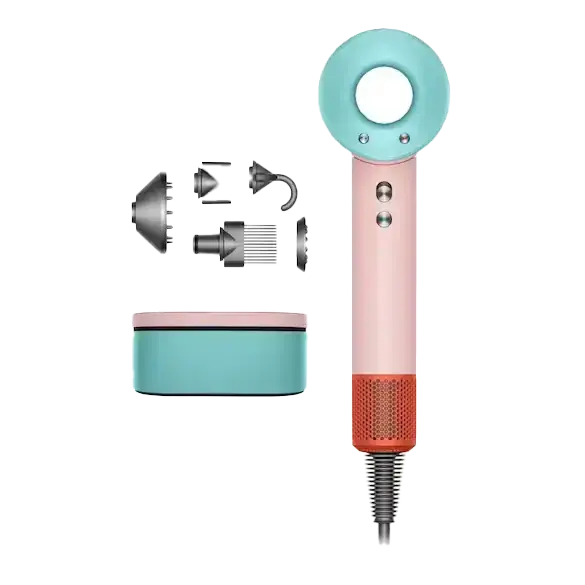
ghd Helios Professional Hair Dryer: Offers advanced ionic technology for faster drying and reduced frizz.
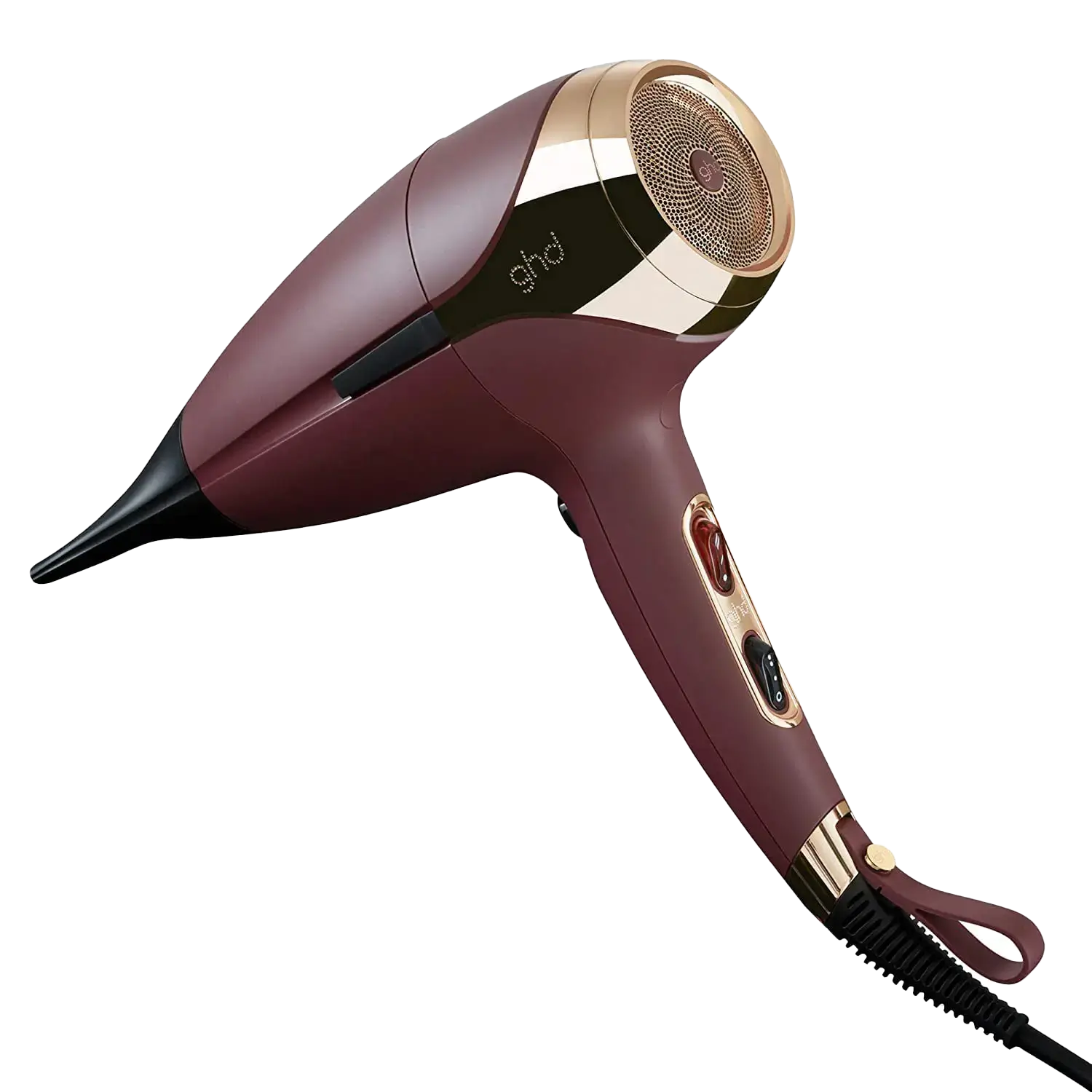
Elchim 3900 Healthy Ionic Dryer: Combines ionic and ceramic technology for healthy, shiny hair with a powerful but quiet motor.
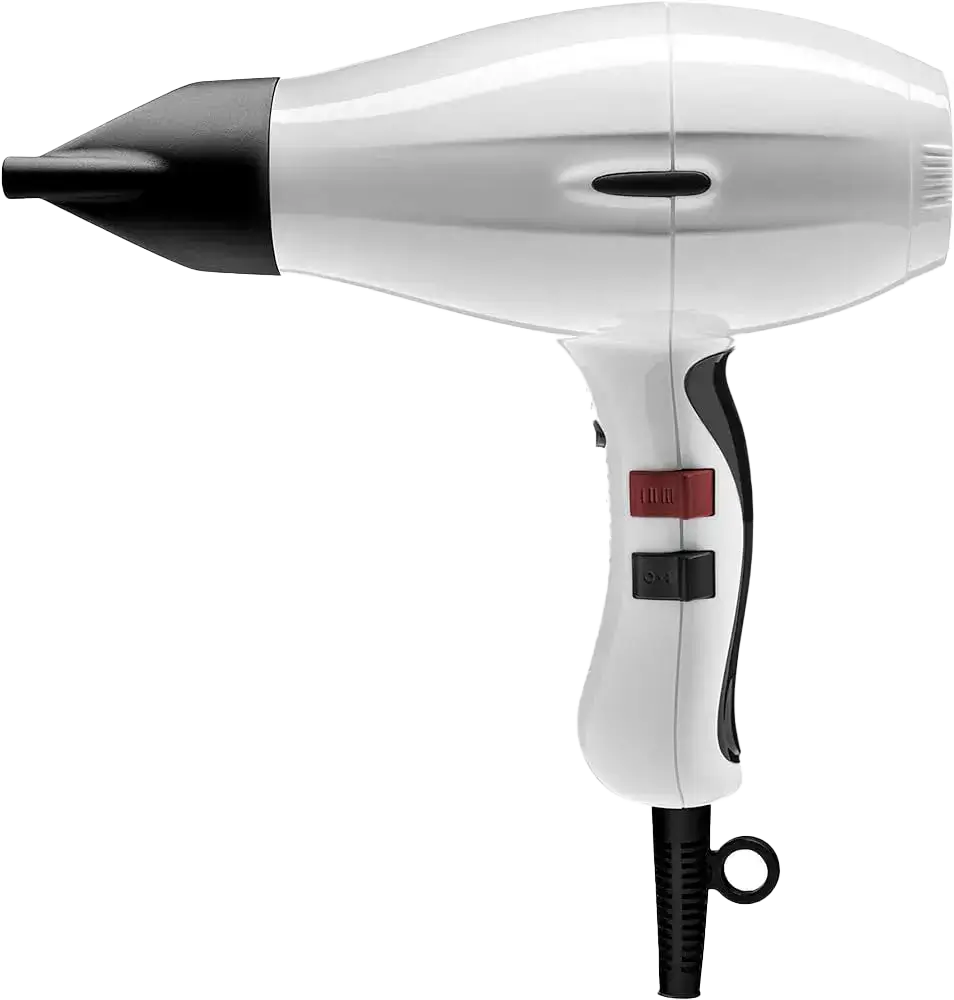
Consumer Hair Dryers
Definition and Key Characteristics
Consumer hair dryers are designed for personal, home use, offering a good balance between performance, ease of use, and affordability. While they may not boast the same level of technology or durability as their professional counterparts, they are typically lighter, more compact, and sufficiently powerful for daily drying and basic styling needs.
How Consumer Hair Dryers Cater to Everyday Needs
Consumer hair dryers cater to everyday needs by providing an efficient and convenient way to dry hair quickly. They often feature multiple heat and speed settings to accommodate different hair types and drying preferences. Many also come with attachments like diffusers for curly hair and concentrator nozzles for straight styles, making them versatile tools for home styling.
Common Features and Technologies
Features and technologies in consumer hair dryers include:
Ionic Technology: While more common in professional models, many consumer dryers now also include ionic technology for frizz reduction and faster drying times.
Ceramic Heating Elements: Offer uniform heat distribution for gentle drying and decreased risk of heat damage.
Compact and Lightweight Designs: Ensure ease of use and comfort during styling.
Removable Air Filter: Allows for easy cleaning and maintenance, prolonging the life of the dryer.
Popular Brands and Models for Home Use
Popular consumer hair dryer brands and models include:
Revlon 1875W Infrared Hair Dryer: Offers infrared heat technology for faster drying and minimal risk of damage, at an affordable price point.
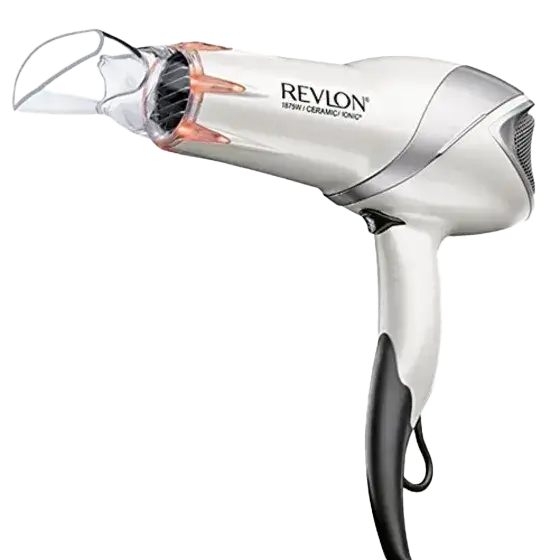
Conair InfinitiPro 1875 Watt Salon Performance Dryer: Provides professional AC motor performance with ionic technology for smooth, shiny hair.
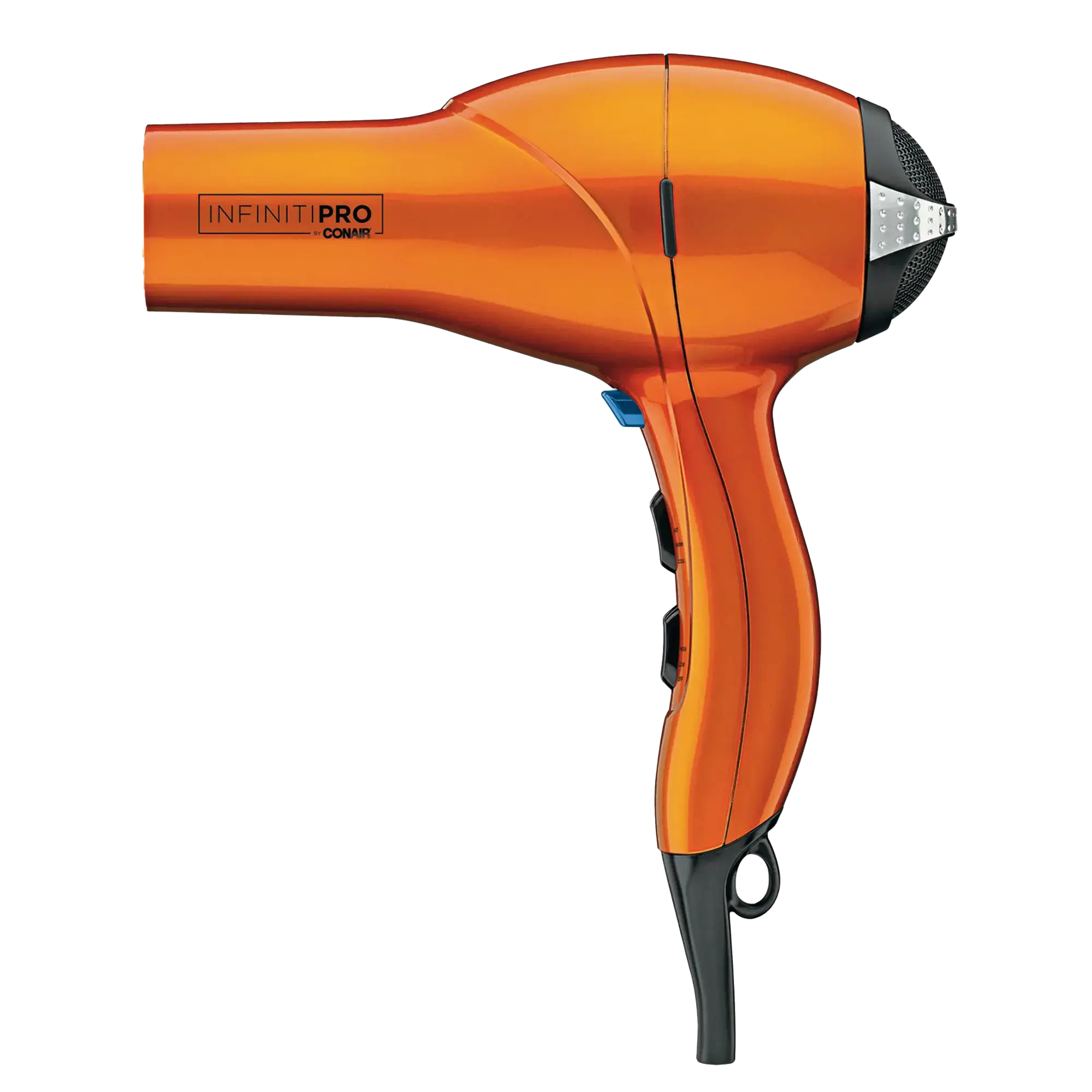
maxodo High-Speed Brushless Hair Dryer: Perfect for those who demand the efficiency and technology of a professional hair dryer with the convenience and portability suited to everyday use. This model stands out for its fast drying capabilities, courtesy of its 1400W power output and negative ionic technology, which together ensure quick drying times without sacrificing hair health. The dryer’s low noise feature and lightweight design (1.1 pounds) make it an ideal companion for home, travel, or gym use. Its thermo-control capability further enhances its appeal to a wide range of consumers, offering professional-level performance at a consumer-friendly price of $79.99.
Key Differences Between Professional and Consumer Hair Dryers
Power and Wattage Comparison
The power of a hair dryer has a direct impact on drying time and efficiency. Professional hair dryers typically boast higher wattage, ranging from 1800 to 3600 watts, allowing for faster drying times and better handling of thick or coarse hair. Consumer models, on the other hand, usually range from 800 to 1800 watts. While they are adequate for home use, they might struggle with salon-level demands or thicker hair types.
Technology and Material Differences (e.g., Ionic, Ceramic, Tourmaline)
Ionic technology: Professional hair dryers often feature ionic technology, which emits negative ions to break down water molecules, speeding up drying time and reducing frizz. While some consumer models also offer this feature, professional dryers typically provide a stronger ionic output.
Ceramic and tourmaline: These materials are used in the heating elements and other parts of the dryer to provide even heat distribution and emit infrared heat. This results in less damage to the hair during drying. Professional models are more likely to combine these materials for optimal performance, whereas consumer models might use them sparingly or not at all.
Durability and Lifespan
Professional hair dryers are built to withstand frequent use, often featuring more durable motors, switches, and heating elements. They are designed to last for several years, even with daily use in a salon environment. Consumer hair dryers, while capable of lasting a long time with proper care, are not typically designed for the heavy use seen in professional settings, leading to a shorter lifespan on average.
Price Range and Value for Money
Professional hair dryers come with a higher price tag, often two to five times the cost of consumer models. This price reflects the advanced technology, durability, and enhanced features they offer. However, for individuals who do not need the high-performance features of professional models, consumer hair dryers offer a more cost-effective solution that meets the needs of everyday use.
Weight, Ergonomics, and Ease of Use
Professional hair dryers are designed for use by stylists who hold them for extended periods, emphasizing ergonomics and lightweight design to reduce arm fatigue. Consumer models, while generally lightweight, may not always prioritize ergonomic design, which can make them less comfortable to use for long durations.
Choosing the Right Hair Dryer for You
Factors to Consider Based on Hair Type and Styling Needs
Hair Type: Thick, curly, or long hair might benefit from the high wattage and advanced technology of professional hair dryers. Fine or short hair can be effectively styled with a consumer model with lower heat settings to prevent damage.
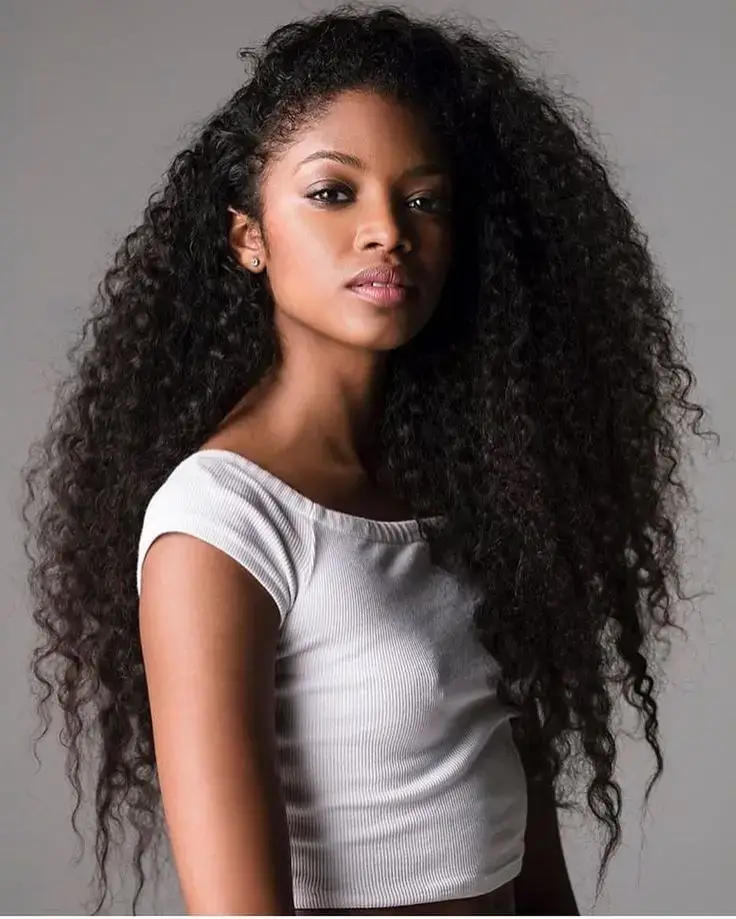
Styling Needs: If you require precise control for styling or use your dryer extensively, a professional model might be worth the investment. For basic drying needs, a consumer model should suffice.
Professional vs. Consumer Hair Dryers: Making the Decision
Consider your budget, frequency of use, and what features are non-negotiable for your hair type and styling habits. If you regularly invest in styling and care about the health and appearance of your hair, a professional model may be a worthwhile investment. For occasional use and basic drying, a consumer model will likely meet your needs.
Tips for Buying Your Next Hair Dryer
Assess Your Needs: Evaluate your hair type and how often you use a hair dryer.
Research: Look into the latest technologies and read reviews to find models that suit your criteria.
Budget: Decide how much you’re willing to spend. Remember, a more expensive hair dryer can be a good investment in the long run for those who need its features.
Test: If possible, try before you buy. Handling a hair dryer can give you a good idea of its weight and ergonomics.
Warranty: Look for products with a warranty to ensure your investment is protected.
Maintenance and Care Tips
How to Extend the Life of Your Hair Dryer
Ensuring your hair dryer lasts for many years comes down to how well you maintain it. Regularly removing lint and dust from the air intake is crucial; this prevents the motor from overheating and extends its lifespan. Avoid wrapping the cord tightly around the dryer when not in use, as this can damage the wires and lead to electrical failures. Additionally, use your dryer on a lower heat setting when possible to reduce wear and tear on its components.
Cleaning and Storage Best Practices
Cleaning your hair dryer should be a part of your routine. Use a soft, dry brush or cloth to clean the exterior and remove debris from the air intake grill. Never submerge your hair dryer in water. For storage, find a dry place away from direct sunlight or extreme temperatures. If your dryer came with a storage bag or box, using it can prevent dust accumulation and protect against accidental drops or bumps.
The Future of Hair Drying Technology
Innovations on the Horizon
The future of hair drying technology looks promising, with advancements aimed at reducing heat damage, improving efficiency, and enhancing user experience. We can expect to see more smart hair dryers that adjust temperature and airflow based on hair moisture levels and type. Innovations may also include new materials for heating elements that offer more consistent temperatures and reduce the risk of overheating.
What to Expect in the Coming Years
In the coming years, anticipate the integration of AI and IoT (Internet of Things) in hair dryers, allowing for personalized hair care routines and connectivity with other smart home devices. Battery technology and portability will also improve, making cordless hair dryers more powerful and longer-lasting. Environmental considerations will drive the development of more energy-efficient models, contributing to the global effort of reducing carbon footprints.
Conclusion
Professional hair dryers typically offer higher power, advanced technology (like ionic, ceramic, or tourmaline heating), and durability designed for salon use, whereas consumer hair dryers focus on cost-effectiveness, ease of use, and convenience for everyday home styling. The choice between the two comes down to individual needs, hair type, and styling preferences.
Selecting the right hair dryer is about balancing your hair care needs with the features and benefits offered by different models. Whether you value the precision and power of professional-grade dryers or the accessibility and simplicity of consumer models, understanding the distinctions between them is key. Always consider your hair type, styling habits, and budget when making your decision. Remember, the best hair dryer is one that meets your specific needs while ensuring the health and beauty of your hair in the long run.
Popular Post

Ultimate Guide to Using a Hair Dryer with Nozzle for Styling
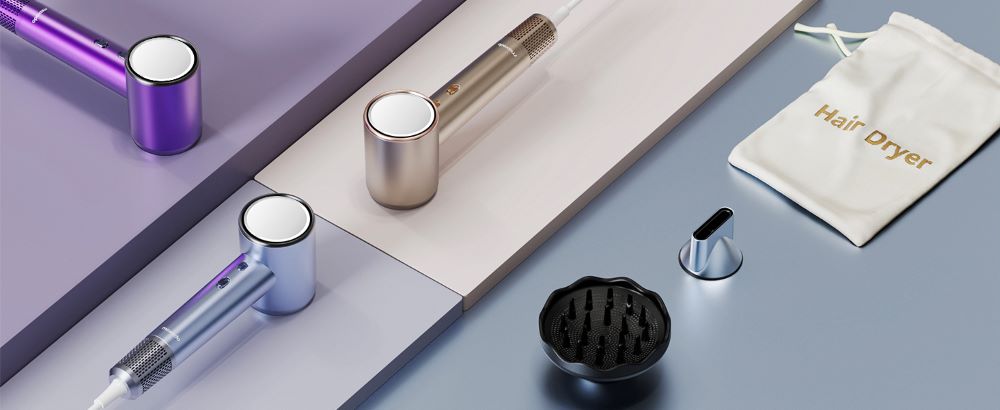
The Benefits of Using a Hair Dryer with a Diffuser
